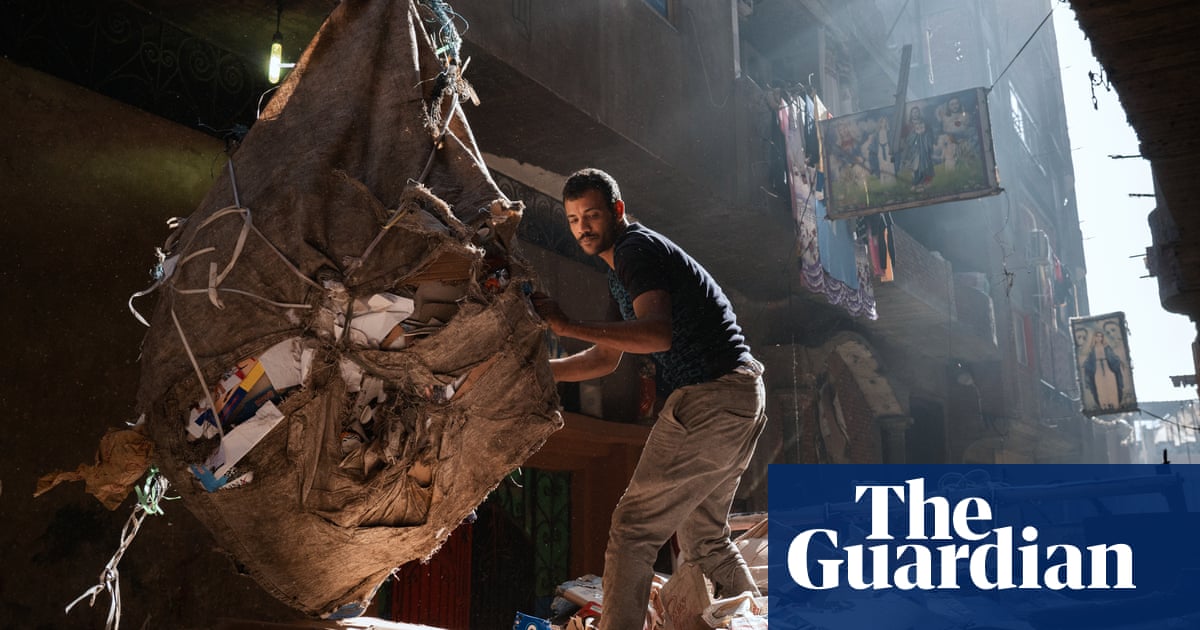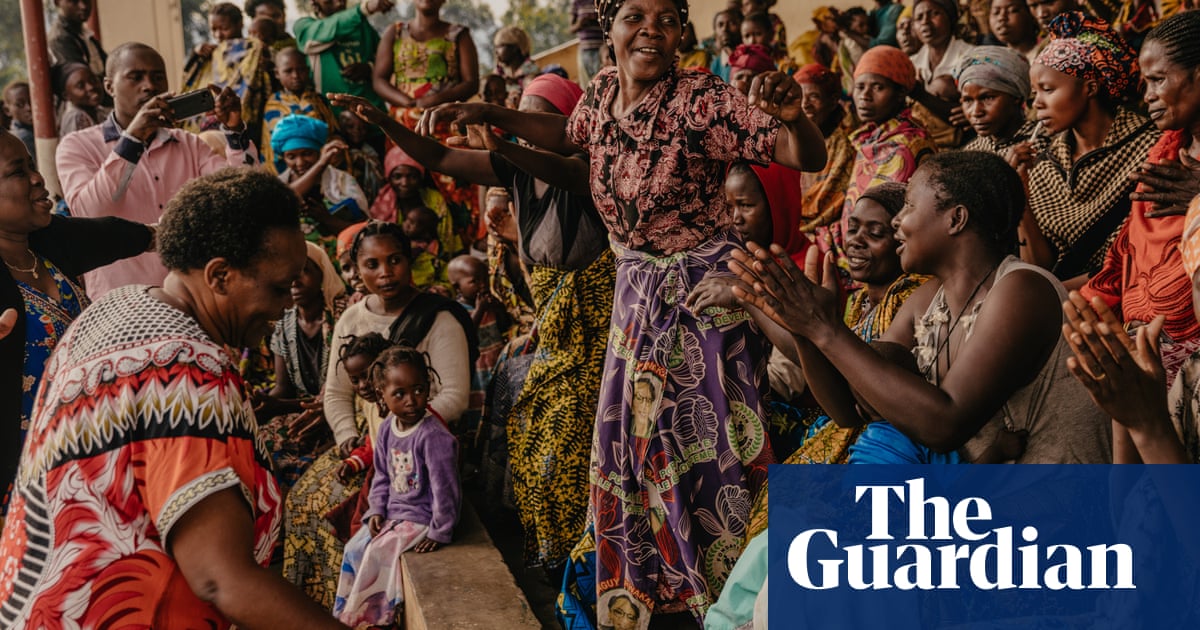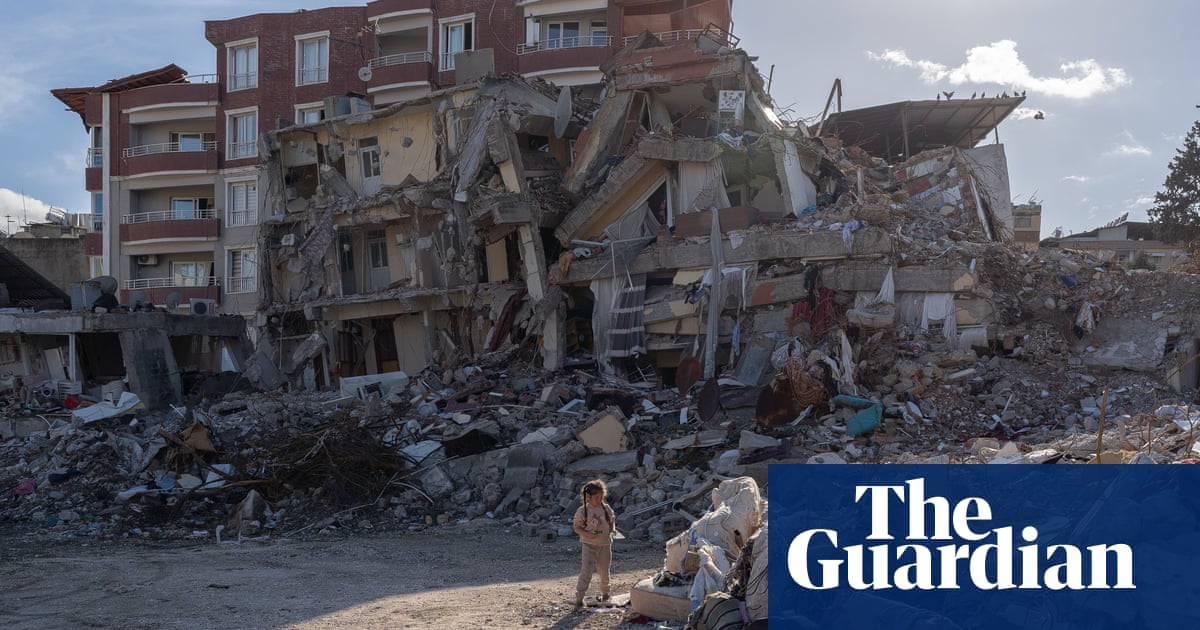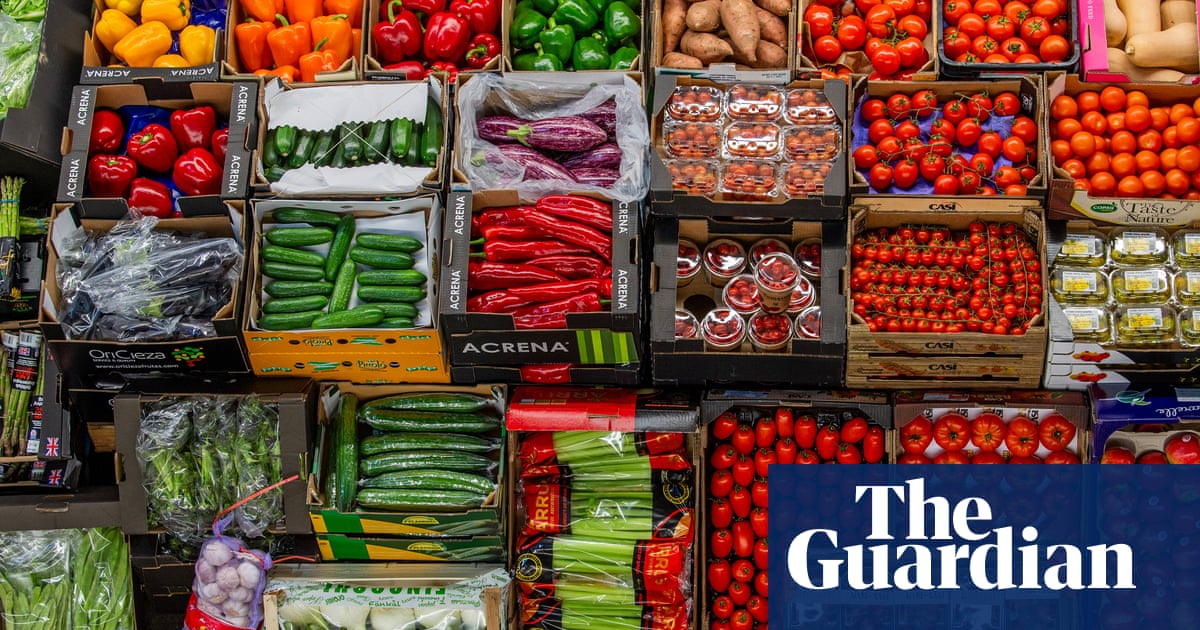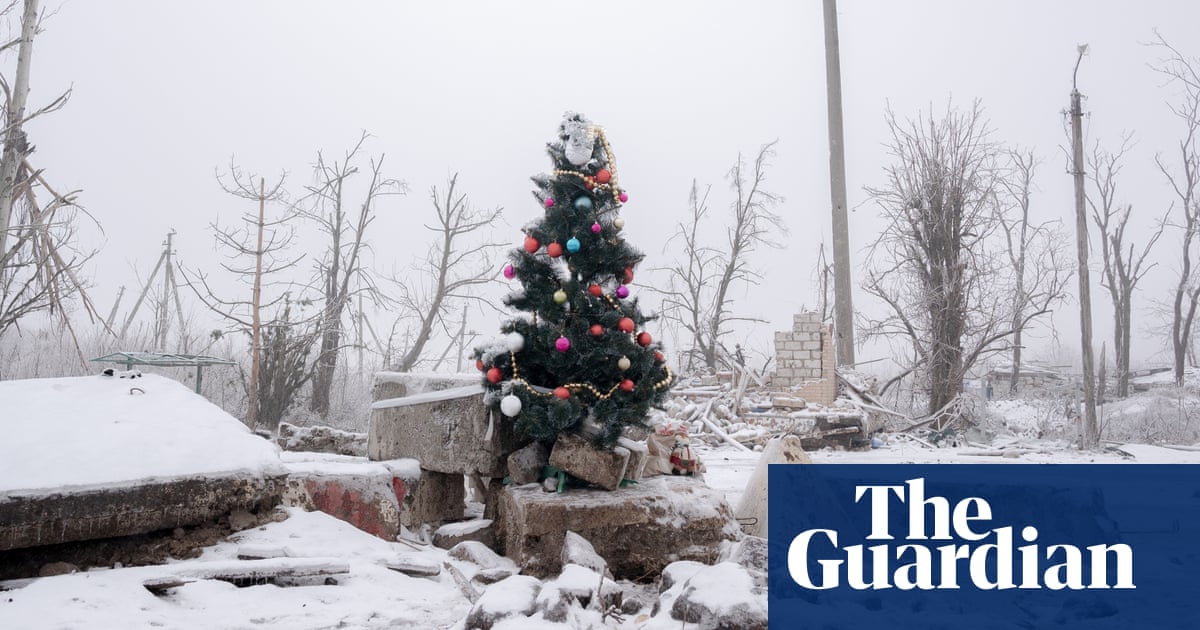
At the crossroad leading to Klishchiivka on the Kostiantynivka-Bakhmut highway, a village liberated by the Ukrainian army after weeks of heavy fighting in last September, a richly decorated Christmas tree defiantly towers into the sky. All around, white fields of snow dazzle the eye, with burnt-out car wrecks, trampled trees and the remains of destroyed houses. In the distance, the muffled detonations of artillery fire can be heard again and again.
“This is the closest tree to the Russians and Bakhmut. Every Ukrainian soldier who goes to the front here sees it.”, says one of the servicemen who put it up here a few days ago. “And we believe that this is the most important Christmas tree in the country right now.”
Some of the tree’s Christmas baubles are frozen, as is a Christmas sack underneath in which the soldiers have placed a bundle of grenade rings.
“Naturally, all holidays are associated with wishes and dreams,” explains a soldier with the call name “Fox”. “But war knows no holidays, life can end very suddenly.” On the chest of drawers next to his camp bed is a small Christmas tree that his wife sent him by mail. She has placed a message for him in each of the sweets hanging from the branches. “I wish you always 450,” the military code for: “Everything OK.” Fox reads out one of them. Another note says: “I wish you that you can go on holidays with your family and friends.”
In the days leading up to Christmas, which is being celebrated in Ukraine for the first time this year according to the new calendar on 25 December in a move away from the Russian Orthodox church, many soldiers near the front in Donbas are tired and exhausted. With a shortage of replacements and lack of rotations, lots of them have not been on front leave for more than a year.
At another location near the front, Bohdan, a battle hardened and twice injured soldier with call sign “Dan” keeps the accommodation for soldiers running. Here, they can shower and rest for a few days before returning to their positions. “They warm their clothes, they warm themselves,” Bohdan explains. Pink Christmas tinsel winds its way along a Ukrainian flag hanging as a screen on one of the room doors. “I’ve decorated the house a bit so that the people who come here from the front get into a different mood and it helps them to relax a bit.”
In Dan’s kitchen, a soldier with the call sign “Troy” wanders around impatiently. The 48-year-old’s eyes hold a “thousand-yard stare,” a testament to his experiences as a trooper on the front lines. He joined the army on February 24th 2022. Troy is short on words. “Many people died or got injured. I’m waiting for new people.”
Asked about his expectations for the future, the sales manager in civilian life replies: “We will fight.” The last time he was at home on front leave was in 2022. “My wife said that there would be no Christmas without her husband.”
We asked some of the soldiers to write down their Christmas wishes in our notepad anonymously. Many longed to return home to their families. For some, like a soldier from Luhansk, this wish seems even further away at present, as his hometown is located in the occupied territories.
“Yes, of course, we think about Christmas all the time,” replies the platoon leader of a drone unit visibly provoked when asked if the soldiers have time at all to think about Christmas. “The boys only have Christmas on their minds and adorn the drones with very special Christmas decorations.”
When asked about his wishes for the people in the rest of Europe, Misha, a 23-year-old drone pilot replies: “Enjoy the holidays.” In a few hours, he will make his way to his position on foot – with 10 kamikaze drones and small bombs on him, in freezing sub-zero temperatures, in the middle of the dark night, without light, so that the Russians cannot see him.
“We’ll celebrate Christmas after the war, when we’re back home,” adds his platoon leader. Until then, things continue as they are. “We have no other choice. This is our home. We can’t just run away.”
After the announced counter-offensive didn’t live up to expectations, the soldiers, many of them fighting for almost two years, are confronted with the harsh reality of Russia’s inhumane and brutal war of attrition, even if the Russian army proves unable to make any substantial gains itself.
As victory now appears significantly more distant, they realise that a long and treacherous war lies ahead, increasing the likelihood that not all of them will survive.
While the world’s attention is turning away and the USA and the EU are unable to agree on the life saving aid packages for Ukraine before the Christmas break, these soldiers, confident in victory, find themselves lonelier and more exhausted than ever – but see no choice but to continue fighting.







